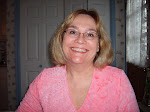With my youngest brother, circa 1972
Ouma Rose, as I knew her, was born on May 7th, 1892, in the Eastern Transvaal, South Africa. Her parents were pioneers ("Voortrekkers") who had left Uitenhage in the Eastern Cape in an oxwagon, her mother's piano part of the possessions they decided to take with them. They settled near Dullstroom and farmed the land. They had two children, Peter and Rose.
During the Second Boer War they had received advanced warning that the British ("Rooinekke" were coming. The Brits practiced a scorched earth policy which meant they destroyed farms, burnt crops and killed all the animals in their path. Rose and her family fled to a hill behind the farm homestead and watched as the British soldiers plundered their home. Everything was destroyed, and later she would tell the story and end with the words, "There was not even a scrap of fabric big enough to make a dress for my dolly." Shortly after that her mother died and her dad was captured by the Brits. The children were placed in concentration camps: yes, you read correctly. The British were the first to do this. They wanted to annihilate the Afrikaner race and claim for themselves the riches of the gold and diamond mines that had been discovered in South Africa. Many thousands of women and children died from cholera and dysentry.
Two incidents occurred while they were in the camp, small incidents that she remembered always. Each person was given a small paper twist of salt. They were told it was the only salt they would get for the duration of their time there. Rose hid her little stash in a hole in a wall and someone stole it. For the rest of her life she always made sure she had enough salt, she would cook with it and place a teaspoonful of it on her plate just in case the food needed more salt. Her brother-in-law made her a little salt brick which she carried in her purse and would occasionally lick. (And for the record, she never suffered from high blood pressure!)
Ouma Rose looking rather spiffy in her uniform
The other incident occurred when her father was asked by a British Captain if he would train the horses for the troops. He said that he would, on condition that Peter be released from the Women's camp and come and live with him. The deal was agreed upon and Peter went to stay with his dad. One day Peter happened to be walking past a soldier's open tent and he noticed a photograph on the soldier's trunk. He asked the soldier who the people in the photograph were, and was told that it came from a farm they had sacked and destroyed. The photo reminded him so much of his wife and children that he had decided to keep it. Peter took it in his hands and exclaimed that the picture was of his mother, father, sister and him! The soldier gave Peter the photograph which survived the war, the internment and was finally given to my aunt, and now one of my cousins has it.
Rose, her brother Peter and their father, Leopold Rautenbach
After the war ended, Rose was raised by the family who had taken care of her in the concentration camp. She went on to become a nurse and got engaged to a Scottish doctor, Dr. Donal Mahoney Barrie.
Dr. Barrie
He died during the 1918 Influenza Epidemic. Rose fell ill as well but mananged to survive. She said they gave her champagne to drink, and she believes it cured her as there were no other medicines available to combat the ferocious, deadly flu.
Rose married my grandfather, Pieter (Tickey) van Der Bijl. He had returned from studying at a university in Toronto, Canada, prior to WWI because his father had fallen ill and was not expected to survive. Rose was nursing him. According to her story, my grandfather had marched into the kitchen where she was making tea for her patient, swept the hat off his head and kissed her. He was smitten! Although they had a long and happy marriage, she always talked tenderly and wistfully about Dr. Barrie, as if he were the one love she never forgot.
Rose lived through the Great Depression, had two daughters, my aunt Poldi (Regina Leopolda) and my mom, Elizabeth (Bettie). She passed away at the ripe old age of 94, in 1987, a petite little bird of a woman who had lived through some of the biggest changes and challenges of the 20th Century.
Rose and one of her sisters-in-law, Lettie van der Bijl
Oupa Tickey on the farm near Springbok, Transvaal, circa 1925
My mother and my aunt, circa 1933.
Two Van Der Bijl brothers.
She was survived by two daughters, six grandchildren, and 15 great-grandchildren.





















































